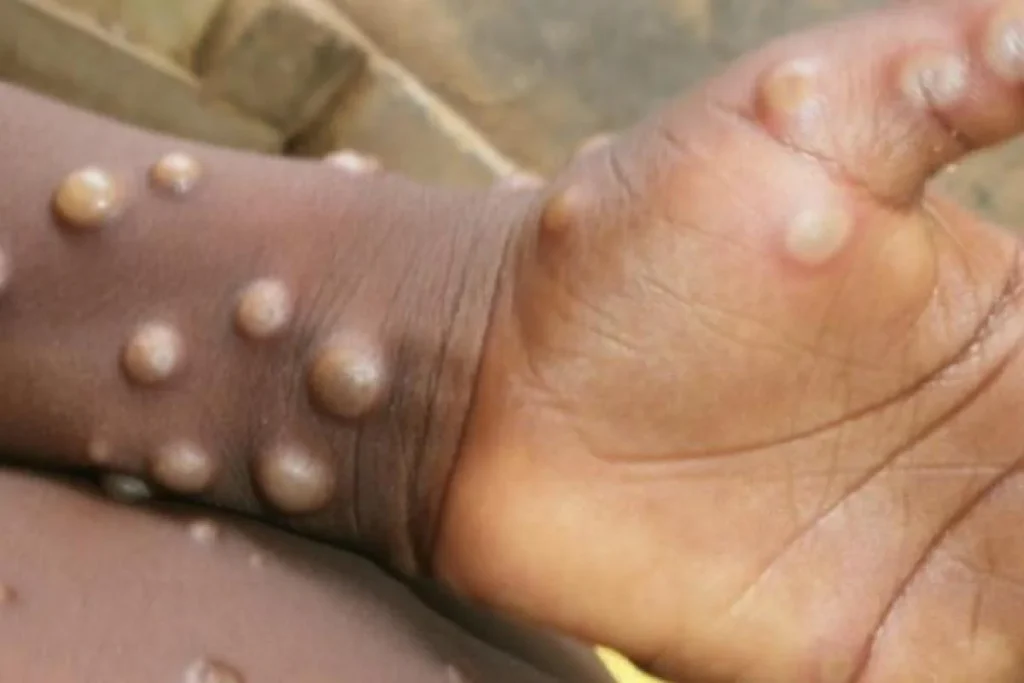
The Democratic Republic of Congo (DRC), Sierra Leone and Uganda continue to bear the heaviest burden of the mpox outbreak in Africa, accounting for more than 84 per cent of all confirmed cases across the continent, according to the Africa Centres for Disease Control and Prevention (Africa CDC).
The data, shared during a media webinar on Friday, reflects the situation as of epidemiological week 25 of 2025 and highlights the need for intensified, localised interventions even as overall case numbers show signs of decline.
Director-general of the Africa CDC, Dr. Jean Kaseya said that since the onset of the ongoing epidemic, the DRC alone has accounted for 62 per cent of all confirmed mpox cases in Africa. “While we’re seeing a consistent decline in mpox cases across Africa in the last six weeks, the burden remains overwhelmingly concentrated in just a few countries. This calls for tailored and intensified response efforts in these hotspots,” he stated.
From January 2024 to June 2025, Africa has recorded over 75,630 suspected mpox cases, with 25,175 of them confirmed and 574 fatalities reported. The DRC remains the epicentre, followed by Uganda and Sierra Leone, which have recorded over 6,900 and 4,297 confirmed cases, respectively.
Kaseya noted that children are increasingly affected. In Burundi, nearly 47 per cent of confirmed mpox cases are in children under 15. Similarly, in Uganda, over 11 per cent of cases fall within this age group, raising concerns about household transmission and school-based outbreaks.
Additionally, males account for over two-thirds of confirmed cases continent-wide, a pattern that suggests possible gender-specific exposure risks that require deeper epidemiological investigation.
Despite improvements in testing accuracy, testing coverage remains low across many regions due to logistical challenges such as poor sample transport in remote and underserved areas, particularly in the DRC and Sierra Leone. However, he commended Sierra Leone for recent improvements, including faster turnaround times for results (averaging 2.5 days) and an 85 per cent positivity rate, indicating focused and effective surveillance.
Vaccination efforts, while impactful in some regions, continue to face hurdles. According to the Africa CDC, more than 698,000 people in 11 African countries have received at least one dose of the mpox vaccine. The DRC has led the way, with over 530,000 people vaccinated, representing 75 per cent of the continent’s total.
Sierra Leone recently completed the second phase of its mpox vaccination campaign, immunizing more than 70,000 people since June 23, 2025. However, supply chain disruptions and vaccine stockouts remain critical challenges. Liberia and parts of Sierra Leone have reported shortages, threatening to derail gains made through targeted campaigns.
Beyond vaccines, mpox response teams are contending with other operational hurdles. In Uganda and the DRC, many treatment centres are overstretched and under-resourced. Kaseya cited examples from Entebbe and Fort Portal, where case management units are exceeding capacity amid medicine shortages, ambulance fuel constraints and gaps in hygiene staffing.
Still, there are encouraging signs. With the rollout of improved case management protocols and ongoing health worker training, case fatality rates have dropped to 0.5 per cent across the continent—a modest but meaningful improvement.
Kaseya urged African Union Member States to adopt an integrated emergency response model that addresses mpox in conjunction with other public health threats, particularly cholera. “We cannot treat these outbreaks in isolation,” he said. “The mpox epidemic remains a public health emergency of continental security (PHECS) and we must not relent in our efforts.”
Science Nigeria reports that mpox, formerly known as monkeypox, is a viral illness like smallpox. It is primarily transmitted through close contact and can cause fever, rash and swollen lymph nodes. The disease can be particularly severe in children and individuals with weakened immune systems.
In the same regions battling mpox, cholera—another major health threat—continues to spread through contaminated water and food, causing acute diarrhoea and potentially fatal dehydration if not promptly treated.
As African countries face these dual epidemics, experts warn that sustained political commitment, international support, and community-led action will be essential to contain infections, reduce fatalities and protect vulnerable populations.

